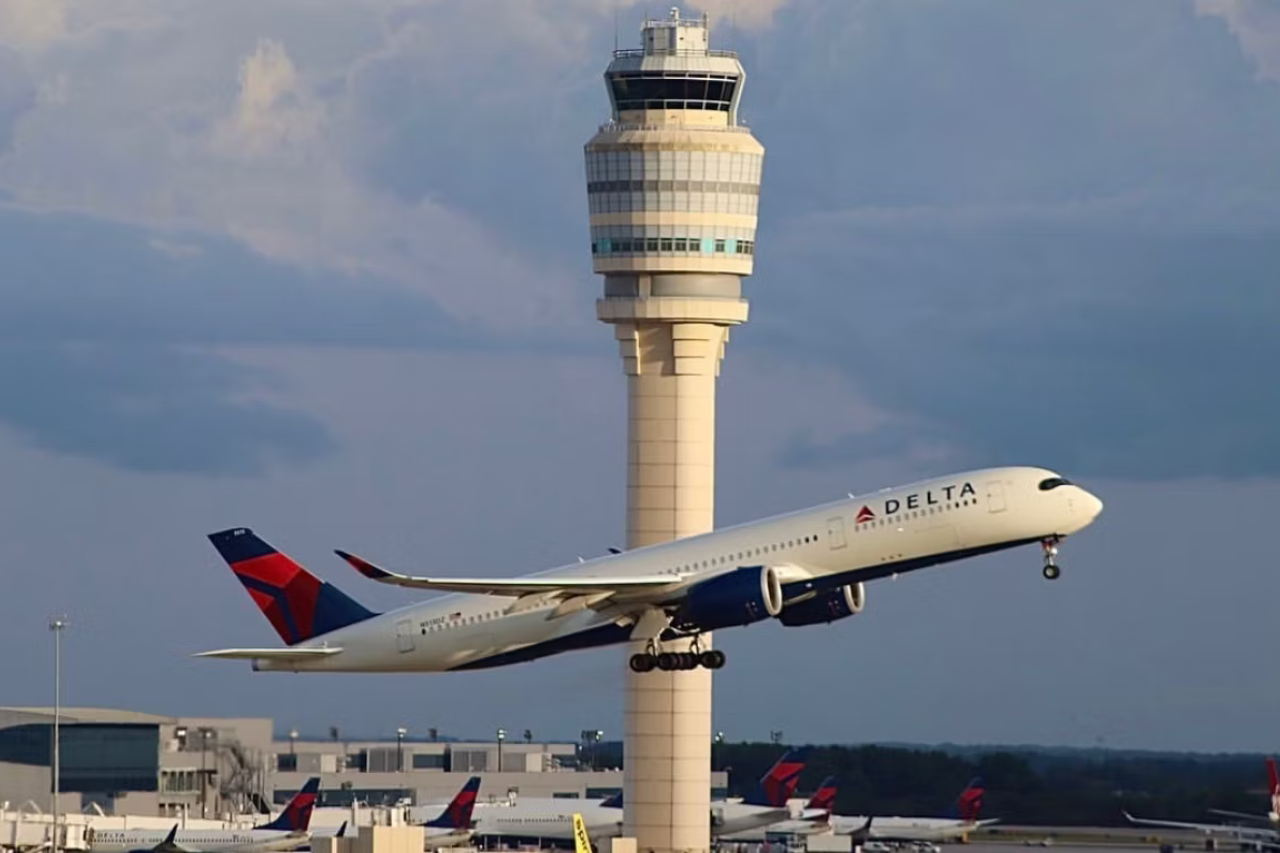
Atlanta's Hartsfield-Jackson International Airport (ATL) represents the city's prominence in global aviation. Serving as the primary gateway to the southeastern United States and beyond, it holds the distinction of being the busiest airport in the world. According to Airport Technology , ATL has held the top spot on the list of busiest airports every year except one (2020), since 1998.
In 2023, it recorded 104.6 million passengers – a whopping 17.7 million more than the second-busiest airport, Dubai International Airport (DXB), which served 86.

9 million people. The final 2023 figures from Airports Council International confirm that Atlanta ATL was the world's busiest airport by passengers. But what sets Atlanta's airport apart from the rest? In this article, we delve into five key reasons that make Hartsfield-Jackson a hub like no other.
1 Strategic location Right in the heart of the southeastern United States To grasp ATL's significance, it's essential to understand the essence of its home city. Atlanta, the capital of Georgia in the United States, serves as a pivotal center for economic activity in the southeastern region of America. Situated only two hours from major American hubs like New York, Dallas, Houston, and Chicago, the airport is also just a few hours from most of the Caribbean and Central America.
This makes ATL an ideal connecting point for flights between North America, Europe, Latin America, and beyond. As a result, ATL serves as a major transportation hub for both domestic and international travel. Furthermore, with access to major highways and rail networks, ATL attracts passengers from a wide geographic area, contributing to its status as the busiest airport on the planet.
As reported by CNN , there are a number of reasons why Atlanta is “fertile soil” for a booming air travel hub: Local business leaders and the government have always been strong supporters of investments in the airport – since the 1920s – recognizing the significance aviation can have on the economy. Situated 10 miles (16 km) south of downtown Atlanta, the airport is close enough to be conveniently accessed, yet far out enough to grow as needed. The land around the airport is one of the few flatter areas in an otherwise hilly region.
2 Far-reaching route network ATL is a hub for over 150 destinations ATL connects passengers to an incredibly vast network of routes, with non-stop service to more than 150 domestic destinations and international destinations across six continents. Whether it's a business trip to New York City or a vacation in Paris, the airport connects passengers to cities near and far, cementing its position as a global aviation hub. Surprisingly, the list does not include any New York area airports.
Some major international locations with direct connections to ATL include (from shortest to longest flight time): Toronto, Canada (2h 12m) San Jose, Costa Rica (4h 2m) London, United Kingdom (8h 10m) Paris, France (8h 25m) São Paulo, Brazil (9h 35m) Istanbul, Turkey (10h 20m) Doha, Qatar (13h 30m) Tokyo, Japan (14h 10m) Johannesburg, South Africa (15h 0m) Additionally, per Infinite Flight , between 65-80% of passengers at ATL are connecting passengers – plus, more than 80% of the US population live within a two-hour flight from ATL, according to the airport . This comes back to ATL being located at a prime spot, allowing for convenient connections throughout the southeast US and Latin America. Get all the latest aviation news for North America here.
3 Extensive airline network 23 airlines serve ATL The 150 destinations to which ATL is connected are served by airlines from around the world operating out of Atlanta, offering travelers a multitude of options for reaching their desired destinations. 23 airlines provide scheduled passenger flights to and from ATL, per FlightsFrom.com .
Most major US airlines serve the hub, such as: Alaska Airlines American Airlines Delta Air Lines Frontier Airlines JetBlue Airways Southwest Airlines Spirit Airlines United Airlines And when it comes to international airlines, these include: Air France British Airways KLM Korean Air Lufthansa Qatar Airways Turkish Airlines Virgin Atlantic 4 Delta Air Lines' hub ATL is the airline’s primary base Of the airlines that serve ATL, one stands out: Delta Air Lines . As one of the world's largest airlines, Delta carried more than 190 million passengers in 2023. So it comes as no surprise that, with Delta choosing Atlanta as its primary hub and operational base, it accounts for a significant portion of the airport's traffic.
As Delta's primary hub, Atlanta serves as a crucial hub for connecting flights, attracting millions of passengers each year and contributing significantly to the airport's overall traffic volume. Delta was also recognized as North America’s most on-time airline in 2023 – it’s no wonder the carrier is popular among passengers. Delta’s big numbers, no doubt, contribute to ATL’s performance: 100,000 staff 4,000 flights daily – around 800 leave ATL 280 destinations in its route network 2.
2 billion cargo-ton miles transported by Delta Cargo each year 5 State-of-the-art facilities With big passenger traffic comes big facilities To handle more than 104.6 million passengers, ATL relies on advanced facilities and systems that ensure efficiency and enhance the passenger experience. According to How Stuff Works , ATL has been named the most efficient airport in the world 19 times by the Air Transport Research Society (ATRS) at the University of Maryland.
From modern terminals equipped with dining and retail options to efficient baggage handling systems and convenient transportation services, the airport prioritizes passenger comfort and convenience. As stated by ATL , some impressive facilities that can be found at the airport include: 152 domestic and 40 international gates The Plane Train: an underground 3-mile train network that connects the airport’s seven concourses. This carries more than 200,000 passengers each day.
More than 30,000 public parking spaces ATL SkyTrain: connects passengers to the Rental Car Center, Georgia International Convention Center, hotels and office buildings.













